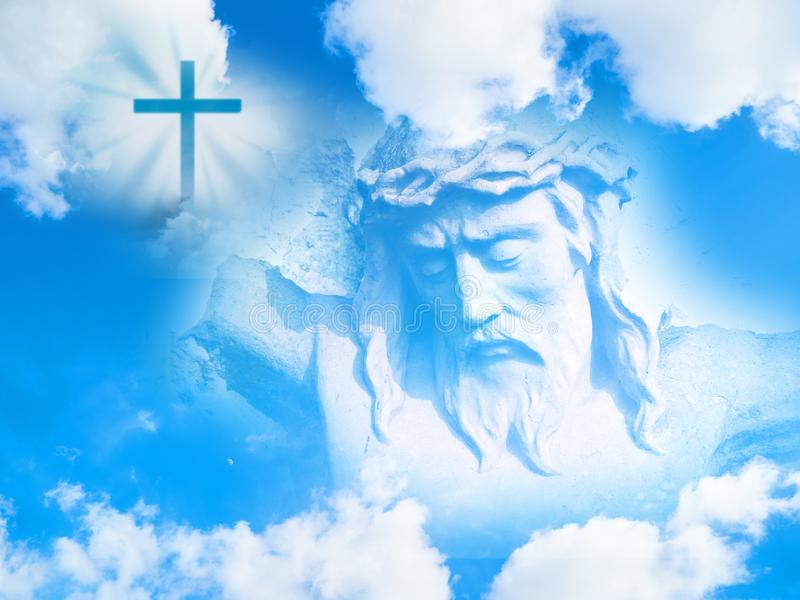IS GOD TRANSGENDER? ASKS VARGHESE PAMPLANIL

The article “Is God, he, she, or it?” which was published in CCV has prompted this small presentation.
The Origins of Religions and Evolution of Gods
The Hebrew Bible, the starting point of Judaism, Christianity and Islam contains remnants of the primitive hunter-gatherer religions. Edward Taylor, considered to be the founder of social anthropology says that primordial form of religion was “animism” — attribution of life to inanimates; rivers, clouds, wind, thunder, volcanoes, stars, trees, mountains and the like. The impetus to religion was making sense of the world. Religion has been significantly shaped by politics, economics. Environmental and social factors too impacted the growth of religions.
Though couched in loftier language, ultimately self interest forms the core of religion.The raison d'etre of religion is the belief that there is an unseen order and that the supreme good lies in harmoniously adjusting ourselves thereto.
Why do we believe in gods?
Our minds manufacture god(s). The god of Abrahamic religions is paternal. He is believed to supervise the lives of believers. He hears our prayers, if we worship him hard enough and make suitable sacrifices to him. This invisible god seems to have a purpose for everything.
Many humans believe in a god, love a god, defer to a god, envision a god like us, pray to a god and assume that our prayers would be answered, create rituals to worship a god, and even die and kill for a god.
A believer is firmly convinced that his/her God will be swayed by praise, prayers, entreaties, offerings etc., and grant boons. If the prayers do not bear fruit, the clever shaman/ priest would find fault with the lack of resolute faith and shortcomings in the prayers. The foolish believer is made to pray more and more fervently and more money as offering.The petitions I heard in novenas, in honour of saints invariably are, trouble-free deliveries of babies, jobs for the unemployed wards and advantageous marriage alliances for children. The most fervent prayer turned out to be the plea for stopping beatings by drunken husbands. The average believer does: “apply, apply, even if there is no reply”.
For many, praying may give solace, comfort and feel- good factor. No harm is done by this. But when God is marketed as a commercial commodity, it is rank exploitation and outright cheating for making money and is very dangerous.
History of God(s)
The Evil Spirit or Devil would have emerged first according to many thinkers. God was created, as a counterforce to the evil mechanisations of the Evil Spirit. God is invoked mostly in times of troubles.
Religion invented by our ancestors captured our brain chemistry that foster in a unique manner interrelationships that tie up people together thus facilitating social bonds within the tribes. Unseen forces; gods and dead ancestors were believed to keep constant vigil over usand determine and give punishment. In this milieu, gods made sense.The next logical step was to create rituals meant to help the communication with the invisible forces.The building blocks of beliefs are perception of powers higher than ourselves. Thus god is the product of the mind or more precisely a by-product of the mind’s cognitive mechanisms.
Our ancestors most likely dreamed up gods. We do not know how and when these remote ancestors created the first gods. The early religions had probably no priests or ecclesiastical hierarchy. Quasi-leadership positions could have been assumed by elders and alpha-males. Shamanism was the forerunner of priesthood. Popes,Ayatollahs and the plethora of clergies and other rigmarole came later.
God images are cultural creations related to the particular time and place in which they have emerged. The male God is the natural reflection of patriarchal society that evolved in the ancient Near East.
God is another guy
Our predisposition is to ascribe human-like powers or attributes to nearly everything we encounter. Humans are strongly biased to interpret unclear evidence as being caused by a human like agent. The supernatural always remains connected to the ordinary and everyday world.
By definition God is formless and ethereal. But for many people, God is another human; at best one endowed with superhuman powers. God is thought to have human nature, human characteristics and human proclivities: love, hate, anger, compassion and other passions. He is seen as retributive and vengeful, prone to punish wrong doers by dumping them into the everlasting and ever roaring intense fire of hell for eternity.
To a believer, God reads the innermost thoughts of humans, keeps meticulous accounts of human deeds, good, bad and the ugly; rewards the good ones and punish the evil doers.
The Christian god is particularly interested in human sexual predispositions and orientations. His agent on Earth, the Catholic Church, keeps hawk’s eyes on the sex acts of its followers. The Church has put in place elaborate and detailed instructions as to the manner of having sex. Homosexuality and lesbianism are unpardonable grave sins. So also contraception and abortion of even untenable foetuses. But abortions of nuns who had been raped by Congolese soldiers were pious deeds.
The Judeo-Christian God is thought to be physically everywhere; knows if we have been naughty or nice in our deeds, even in our thinking. But everything else about him is human. This God can be surly, impatient and vengeful in most ways. He is another guy like you and me. Religions always assign simple mundane human capacities to their gods. All normal attributes are there.
Gods are assumed to perceive, feel and behave like ordinary folk; they are like the best and the worst of us. The million dollar question: why people should have to pray to the all knowing God; he ought to be aware of our wants, needs and problems?
Religion arrogates itself that without it, humans will be unethical, amoral and lawless. But our brain neurones resoundingly refute this conclusion. We feel pain of others that induces in us empathy, distress and the urge to help. Our brains are ethical by design. Religion utilise this innate ability to justify its relevance.
WE DO NOT REALISE THE EXTENT OF THE HARM RELIGIOUS DOGMAS AND MOTIFS DO TO THE HUMAN PSYCHE. MANY CHILDREN ARE DISTRESSED ON SEEING THE STATUE OF THE CRUCIFIED CHRIST, WITH BLOOD OOZING FROM HIS DEEP WOUNDS. AT SOME LEVEL MOST CHRISTIANS FEEL THE PAIN OF BEING NAILED TO THE CROSS. THE IMAGE IS MANIPULATED GROSSLY TO EXPLOIT THE BELIEVERS’ INNATE SENSIBILITIES; MORAL AND ETHICAL.
 Yahweh
Yahweh
The God,Yahweh,is a remarkable combination of both female and male grammatical endings; the first part “Yah” is feminine and the last part “weh” is masculine. IN OTHER WORDS, YAHWEH IS TRANS – GENDER, FEMALE ELEMENT BEING DOMINENT.
The God of the Old Testament Yahweh started out just one among the many deities of the Israelites. This God, would have originated in the early Iron Age. In the oldest Biblical literature, he is seen as the “storm and warrior deity” who leads heavenly an army against Israel’s enemies.
Yahweh was not the only God worshipped by Israelites.They did worship a variety of Canaanite gods and goddesses — El, Bal and Goddess Asherah — the female partner of “creator deity”. El carries epithets such as El Shaddai and Elohim words pointing to Yahweh. The name Israel has “el” in it.
From the 9th into the 6thcenturies B.C.E. the Yahwistic religion separated itself from its Canaanite heritage and Yahweh became the soleGod of Israel.
The inscriptions and drawings found in Kuntillet in Sinai in 1975 mention Yahweh “and his Asherah”. The goddess is also associated with Jahweh of Israel:
“A report from the K(ing):
Tell Yehal(el) and Yo’saah.
May you be blessed by YHWH
of Shomon (Samaria) and his ASHERAH”
One scholarly theory holds that Yahweh is a shortened form of the phrase “el du Yahweh saba ot” in Phoenician language meaning “El who creates the hosts”.
A close reading of Book of Exodus would reveal that Yahweh was worshipped by Edomites, Midianites and Moabites; neighbours of Israelites. The genealogies of the Bible contain memory of the confederation of ancient Canaanite peoples, who might also have considered themselves descendants of Abraham. They would have worshipped Yaweh along with other gods; Yahweh was not exclusive to Israelites.
The God in the Old Testament is a king, a father (head of a patriarchal family), a master, a warrior and also a judge. This proposition justifies subservient status of women and their dependence on males. This milieu legitimates the exclusion of women from priesthood and religious leadership.
Gender of God
Gender of God can be viewed as the literal or allegorical aspect of a deity.
In polytheistic religions, gods are more likely to have lateral genders enabling sexual interaction with each other; and even with humans.
In most Abrahamic religions gender of God cannot be applied in the usual sense, as God is seen as an intangible spirit incomparable to any other thing. The idea of a “divine gender” is ultimately considered an analogy in consonance with the concept of God without any sexual connotation.
The preponderance of references to God, both in Old and New Testaments, are masculine gender wise — “Father”. However there are a number of feminine allegorical references to God; mostly in maternal role.
The female analogy of God can be further seen in Genesis 1:26-27; Psalm 123: 2-3 and Luke 15: 8-10; mother in Deuteronomy 32:18; Isaiah 42:14, 49: 15 &66:13; Psalm 131:2; Matthew 33:37 and Luke 13.34.
The traditional Jewish philosophy does not attribute the concept of sex to God. The ways in which God is gendered have also changed across time. Some modern Jewish thinkers viewed God outside the gender binary.
Christianity
Most Christian groups conceive of God as Triune: God the Father, God the Son, and God the Holy Spirit being distinct persons but one being that is wholly God.
The incarnated God the Son (Jesus Christ) is masculine. Classical western philosophy believes that God lacks a lateral sex as it would be impossible for God to have a body (a prerequisite for sex).
In classical western philosophy Gods is referred to as masculine by analogy, the reason being God’s relationship with the world as begetter of the Word and revelation — analogous to an active instead of receptive role in sexual intercourse. Others interpret God as neither male or female.
In rabbinic literature, the Holy Spirit, Shekinah is feminine. But the New Testament refers the Holy Spirit as masculine.
In her essay “Why Women need the Goddess” Carol P. Christ points out the existence of a Supreme Goddess In ancient times
The Feminine Element of God
In the oracles of the 8th century B.C.E. of prophet Isaiah, God is described as a woman in labour and a mother comforting her children.
The Book of proverbs maintains that the female figure of Holy Wisdom, Sophia assisted God during the creation of the world.
French philosopher Simone de Beauvoir in her book Second Sex locates in the Hebrew Bible’s creation story, the origin of the western cultural understanding of the subordination of women. Kate Millet, in the feminine classic “Sexual Politics says: Patriarchy has God in its side”.
Twenty-first century women have difficulty in relating to the male God-image and patriarchal church language, justifying subordinate position of women in Church and society.
The male language or God implies that man is more like God or closer to God’s image. The legitimising of the subordination and degradation of the female sex in church and society have become problematic for women. This problem goes hand in hand with the tyranny of the patriarchal language and the lopsided views in the Bible.
The patriarchal God of Israel was not acceptable to all women. A close reading of the Books of Kings reveals that Asherah was also worshipped until at least the 7th century B.C.E. The Book of Jeremiah would show that Jewish women of early 6thcentury B.C.E. devoted themselves to the worship of the Goddess called Queen of Heaven. They chose to serve the Goddess who thought to meet their needs. This Goddess was believed to ensure fertility of the people and the soil. They also thought that the Queen of Heaven possessed more powers than Yahweh to avert disasters. Goddess worship was more prevalent during the Jewish Exile in Babylon.
The Christian worship of Goddess Virgin Mary may be a throwback of the worship of Mother Goddess/ Asherah/ Sophia /Wisdom.
References:
- J. Anderson Thomson Jr. M. D. —“why we believe in gods
- Sam Harris— “The End of Faith”
- Wikipedia — “Sophia (Wisdom”
- Wikipedia — “Gender of God”
- Wikipedia — “Creator Deity”
- Wikipedia — “Ancient Canaanite Religions”
- Wikipedia — “Origins of Judaism”
- Wikipedia — “Yahweh”
- World History Encyclopaedia — “World History Encyclopaedia”
- Haaretz Israel News —Jewish God Yahweh Originated in Canaanite Vulcan”
11.Female Companion of Creator Male God”
12. F. Klopper, Department of Old Testament, University of South Africa, Pretoria — “Women,Monotheism and the Gender of God.”

















